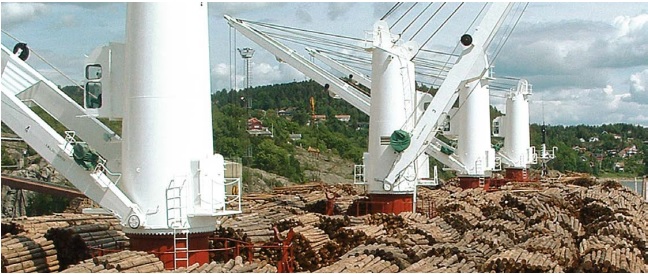DNV GL has issued Technical and Regulatory News including all related information you need when preparing a bulk carrier for deck cargoes.
Structural strength
The deck and hatch covers on modern bulk carriers usually have a structural capacity of around 2.0 to 2.5 t/m2 of uniformly distributed load (UDL), without any reinforcements. This load corresponds to the green sea pressure used in the approval of the vessel. With a few minor reinforcements, it may be possible to increase the UDL, especially for the deck area.
Stability documentation
Compliance with applicable stability and longitudinal strength criteria in deck cargo loading conditions shall be shown in updated/amended stability manuals.
In general, intact GM limit curves shall be recalculated taking into account an additional wind profile area from deck cargo.
Probabilistic damage stability calculations may also be required for ships with reduced freeboard (B-60/B-100), ref. IACS UI LL65. For ships with B freeboard (without reduction), it may be necessary to re-address the damage stability calculations of SOLAS Chapter XII (flooding of single holds), depending on how compliance was documented originally.
The Loading Computer System (LCS) will have to be updated as necessary with new GM limits, profile curves or other stored data. In cases where the ship does not need any new limits or data, a test condition with deck cargo shall be provided to verify that the loading computer can correctly handle deck cargo as input.
Typical documentation requirements for deck cargo
The securing of cargo is very important when it comes to deck cargo. The vessel should be equipped with the relevant securing equipment, such as lashing eyes, container sockets, timber uprights and sockets, chains and wires. The stowage and securing of cargo other than bulk cargo is to be described in an approved Cargo Securing Manual (CSM).
Find out more details by clicking below
Source & Image Credit: DNV GL



































































